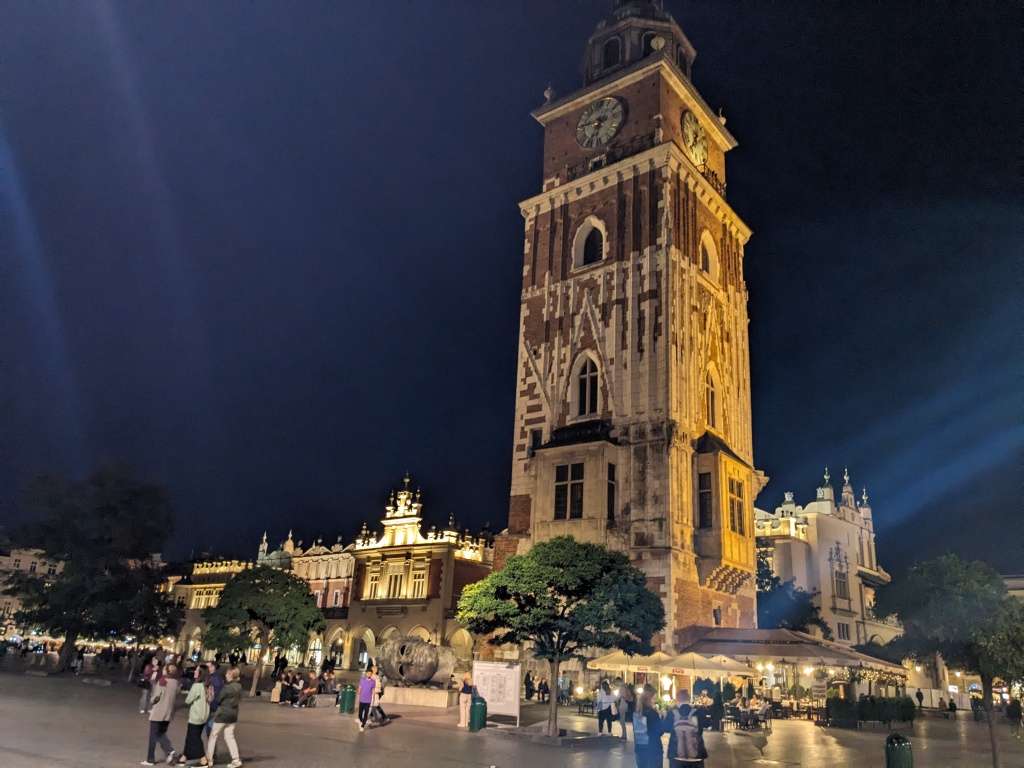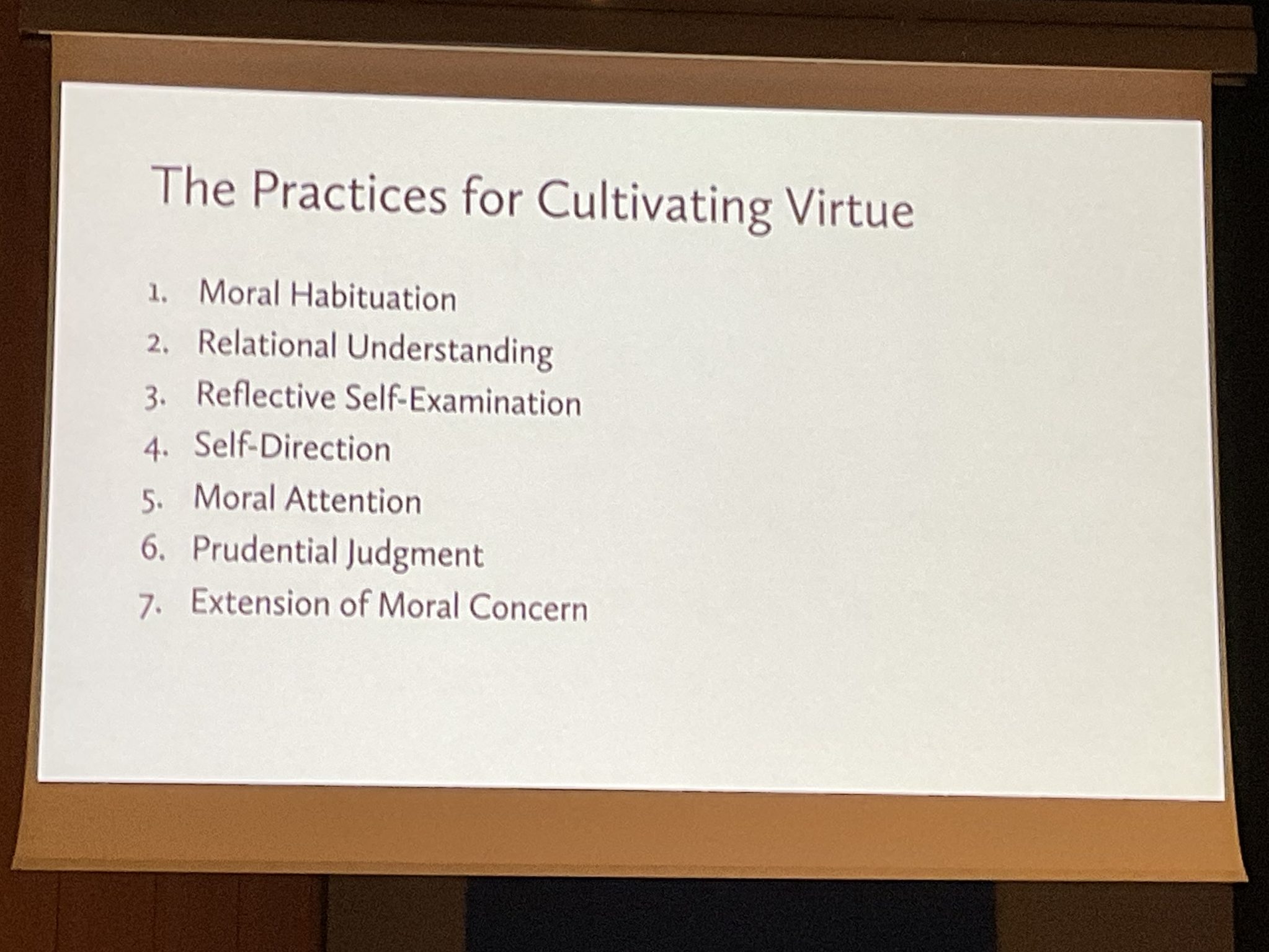Three weeks ago, I had the privilege of attending the European Conference on Information Literacy (ECIL), in beautiful Krakow, Poland. I was there to present some of my PhD literature review as part of the doctoral forum. I will be blogging my reflections on the doctoral forum on my research blog, but here I thought I would share some of my highlights and learning points from the conference.
I have a lot of notes and a lot of thoughts about the conference, so I am going to split this into a few separate posts. In this first post, I will reflect on the four keynote sessions.
This is the first conference I’ve attended since quitting Twitter, which was a challenge for me as I usually use Twitter to live-post the keynotes, as well as connecting with other attendees. I had a go this time at live-“tooting” on Mastodon instead. I’m not totally sure how successful that was! I was the only person posting on the #ECIL2023 hashtag on Mastodon, so I didn’t make any connections with other attendees that way. However, I did check on Twitter a couple of times and there wasn’t much activity on the hashtag there either, so I just don’t think that was a channel many people were making use of.
I still found it useful to live-post as that is my method of note-taking in keynotes! I find it a useful exercise for picking out the key points quickly, so from that perspective I did still think it was helpful to do. If interested, you can see my live posts from the keynotes, as well as one panel discussion, on Wakelet.
As a four-day conference, ECIL had four keynotes – a lot to take in! I was really impressed by both the quality and variety of the keynotes. They all covered different angles, and each gave me different things to think about.
Keynote One: Tim Gorichanaz
Day 1 was opened by Tim Gorichanaz, who spoke about the ethical foundations of information literacy. I was really keen to see Tim speak as I’ve been reading a lot of his work on information experience lately for my PhD! He gave a keynote that was both inspiring and thought-provoking. He talked about the rapid development in information and communication technology, and the effect that this could have on society, both positive and negative. He argued for a sound ethical basis for information literacy, to ensure we are not building on crumbling foundations.
Tim discussed various ethical approaches that have appeared in LIS literature, which mostly come from the philosophical approaches of deontology (duties and rules for the “right” thing to do); or consequentialism (calculating the “rightness” of outcomes, e.g. the trolley problem). He argues that an older ethical approach, virtue ethics, may be more suitable for information ethics. Virtue ethics focuses on doing the right thing, for the right reason, at the right time. Rather than focusing on long-term consequences which are often hidden from view, the focus is on doing the best you are able to do in the situation you find yourself in. Tim set out seven practices for cultivating virtue that we could all embed in our professional practice.
I really loved this discussion: it was just what I needed to set me up for four days of conferencing! I appreciated the reminder to go back to our values and ethical principles as a profession, to better equip us to deal with a changing technological environment.
Keynote Two: Jenna Hartel
Jenna Hartel opened day two with a keynote that was entertaining, eye-opening and thought-provoking. She introduced herself as a tour guide to the “Archipelago of Library and Information Science”: the “islands” of research areas that are visible from the “mainland” of LIS. Some close by and already well-explored, such as the islands of Embodiment and Contemplation; others further away and more challenging to connect back to LIS, such as the islands of Multiple Perspectives, Love, and Psychedelia.
I adored Jenna’s keynote! Although I find it hard to see how psychedelic information could be a research goal for LIS without advocating the use of recreational drugs (although I would love to see the ethics application for that research…), I really appreciate the provocation of thinking about concepts you wouldn’t necessarily expect to connect to LIS research. Jenna has an excellent YouTube channel which is well worth exploring. She shared the below video on the crossroads of information and love during the session as an illustration of some of her ideas.
Keynote Three: Alison Hicks
On day 3, Alison Hicks used her keynote to reflect on the sociocultural turn in LIS research. She noted that this year marks 18 years since the publication of Tuominen, Savolainen & Talja’s landmark paper “Information literacy as a sociotechnical practice”. So as the concept of sociocultural IL reaches adulthood, Alison used citation analysis of this paper to explore how the concept has entered the discourses of IL research, and what gaps remain to be explored.
My notes on the themes Alison identified from her citation analysis are in my Wakelet. I just wanted to pick up on one point that stood out to me: Alison cautioned that while the sociocultural approach has opened up new areas for exploration of information behaviour in context, there is a risk of “itemisation” of IL contexts, as researchers compete to present information literacy practices in ever more niche and specific contexts. She suggested that research needs to move beyond merely documenting the shape of IL experiences in different sociocultural contexts. As my own research is exploring a specific niche of information behaviour (that of female engineering undergraduates), this is a warning I should probably take to heart!
Keynote Four: Sabina Cisek and Monika Krakowska
The final keynote was from Sabina Cisek and Monika Krakowska, both from Jagiellonian University, Krakow (our conference hosts!), on the methodological and interdisciplinary aspects of information experience and information culture. Sabina and Monika made an excellent double act, presenting a very useful outline of the current landscape of information experience research, including how it crosses over related fields. I was glad to learn I’m not the only one who finds the boundaries between information literacy, information practice, information behaviour and information experience to be somewhat fuzzy!
One point Sabina highlighted was that a lot of research in information experience doesn’t draw from or cite key papers in information behaviour. She felt this was a weakness, as there is a robust body of work in information behaviour that could help researchers avoid repetition or reinventing the wheel. I would also add to this that information literacy also has its own, well-established research tradition – I think there is a risk of these competing schools of thought within LIS becoming siloed.
Summary
The four keynotes together worked brilliantly for setting the scene for the conference as a whole. Each keynote separately presented a unique and thought-provoking perspective on the discipline, and the combination of all four keynotes worked really well to provide an overview of current state of information literacy research.

